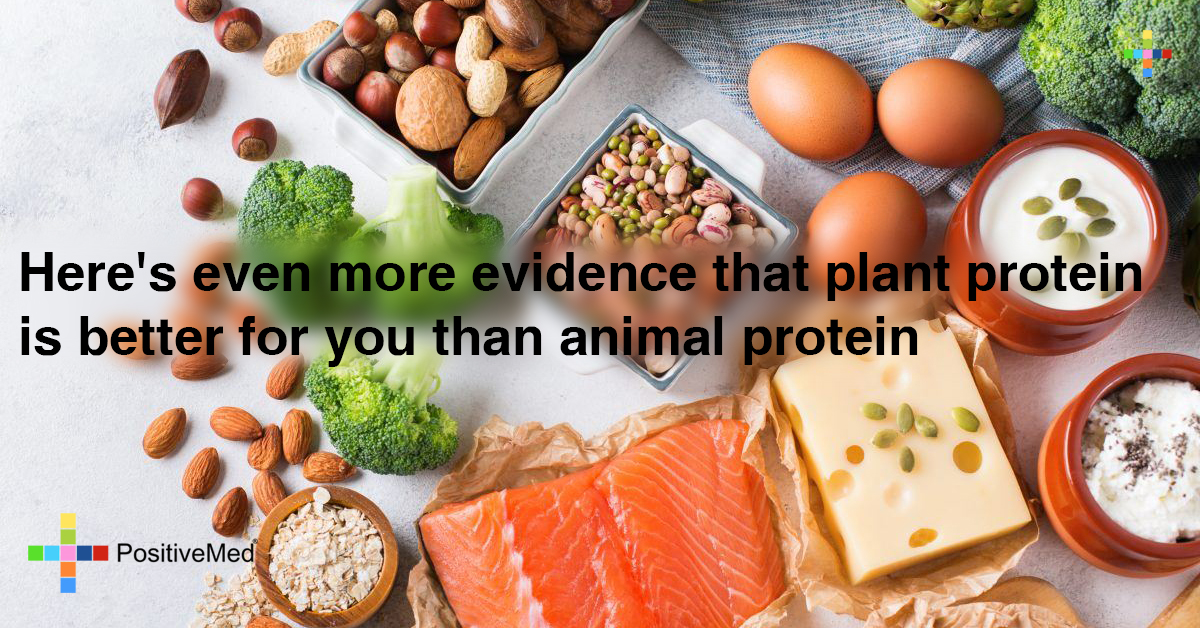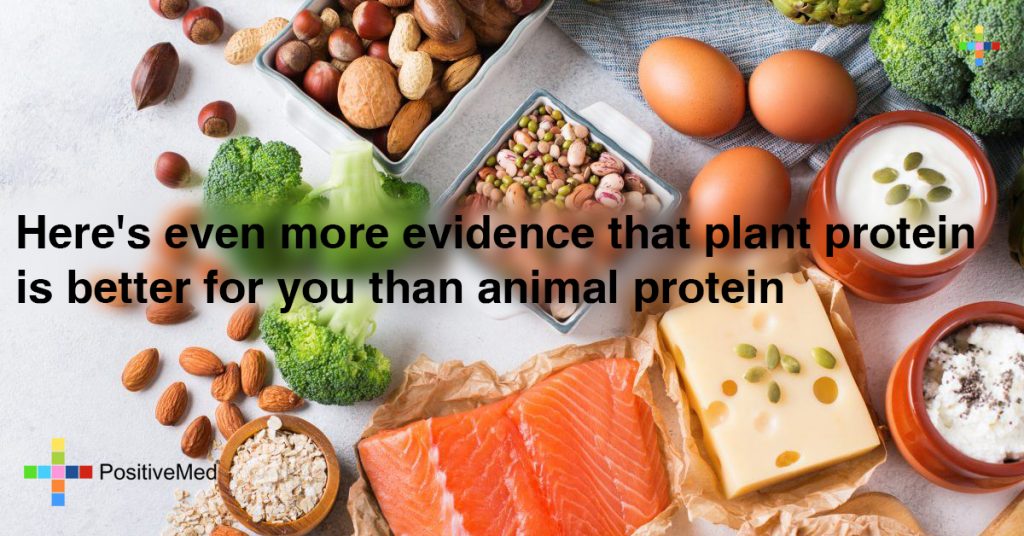Medical experts have been talking about the benefits of a plant-based diet for years. They include healthier weight, a healthier gut microbiome, and lower risk of diabetes, high blood pressure, and cardiovascular disease.

There are many plant-based sources of healthy protein. Look to nuts, seeds, beans, and other legumes, and soy products for the highest protein levels. Whole grains provide substantial amounts too. Many vegetables like avocados can be sources of protein too.
3 Benefits of Plant-Based Protein
There are some benefits that plant-based proteins offer that you simply can’t get from animal protein. Here’s a quick breakdown of the evidence showing that plant protein is better for you than animal protein.
Increased Fiber
Protein from plant sources are generally higher in fiber than their animal-based counterparts. Increased fiber intake is a huge benefit largely because of fiber’s role in maintaining a healthy digestive system. Researchers are discovering new ways that gut health impacts overall wellness and chronic disease every day.
The increased fiber intake from plant-based protein benefits you in other ways, too. Legumes and beans will make you feel full faster and eat smaller meals. This can help you maintain a healthy weight over time.
Healthy Fats
Fat doesn’t have to be a bad word. There are countless sources of healthy fats, and most of them come from plant sources. Plant-based sources of protein like nuts, seeds, and high-fat vegetables like avocados are great sources of healthy fats.
Those healthy fats aren’t just a less dangerous alternative to animal fats. They have many health benefits of their won. A diet rich in unsaturated fats from plant-sourced proteins has been directly linked to lower cholesterol levels. Both total cholesterol and LCL (bad cholesterol) levels tend to be lower in people whose protein intake is largely plant-based. Elevated cholesterol levels are connected to increased risk for cardiovascular disease and stroke.
Phytonutrients
Animal protein, particularly red meat, has been linked to increased rates of cancer. Much of this risk revolves around how the meat is cooked or processed. Heavily processed meats are linked to the highest cancer risks. It is a big enough problem that the World Health Organization (WHO) classified processed meat as a carcinogen in 2016.
Plant protein, on the other hand, is loaded with phytonutrients that may help mitigate cancer risk. Carotenoids and phytoestrogens are two types of phytonutrients found in plant-based proteins like nuts, seeds, and beans. Carotenoids are most closely linked to yellow, orange or red fruits and vegetables. They act as antioxidants in the body by helping to eliminate cancer-causing free radicals. Phytoestrogens work with estrogen in your body and have been linked to lower rates of endometrial cancer.
Conclusion
Science favors plant protein over protein from animal sources for a healthy lifestyle. A diet rich in plant-based proteins can benefit your health in many ways. It can be a natural and proactive way to help you avoid chronic diseases that plague many people. No matter the source of your protein, make sure it is the highest quality possible. Look for a wide variety of protein sources to ensure proper amino acid and nutrient balance.






